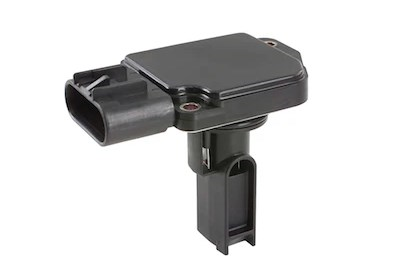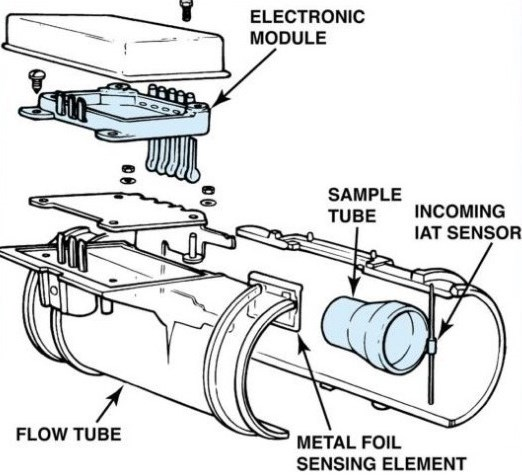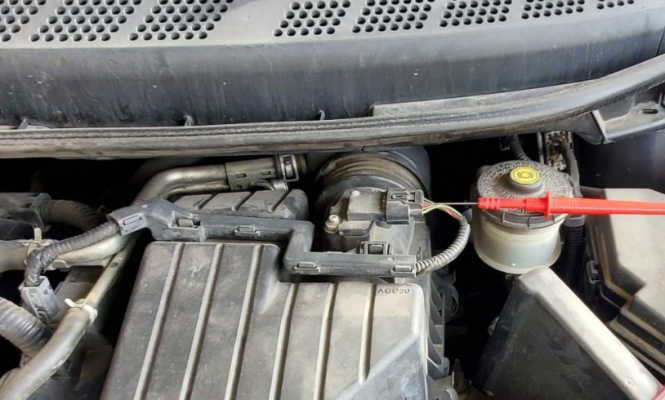OUTLINE:
A Complete Guide to Mass Air Flow Sensor Diagrams
 439
439Mass air flow sensors play a crucial role in monitoring and regulating the amount of air entering a vehicle's engine. In this comprehensive guide, we will explore the components, reading techniques, symptoms of malfunction, and reliable platforms to find accurate mass air flow sensor diagrams.
What is a Mass Air Flow Sensor
Are you new to mass air flow sensor diagrams? Let‘s take a grasp of mass air flow sensor diagrams first!
A mass air flow sensor (MAF) is a device that measures the amount and density of air entering the engine. It sends this information to the engine control unit (ECU), which then adjusts the fuel injection and ignition timing accordingly. A mass air flow sensor is usually located between the air filter and the throttle body, and it can have different shapes and sizes depending on the vehicle model.

Importance of Mass Air Flow Sensors in Vehicles
Want to unlock the secrets behind enhanced vehicle performance? Discover the crucial role mass air flow sensors play in optimizing fuel-to-air ratio and unleashing your vehicle's true potential.
Mass air flow sensors are vital for ensuring optimal engine performance, fuel efficiency, and emissions control. By providing accurate data on the air intake, they help the ECU deliver the right amount of fuel and air mixture to the engine, preventing it from running too rich or too lean. A properly functioning mass air flow sensor also helps to reduce harmful exhaust gases and improve the lifespan of the catalytic converter.
What Will Happen If You Unplug Mass Air Flow Sensor
Car goes into limp mode: In many modern cars, unplugging the MAF sensor will trigger the "limp mode." This means the car's computer will use a pre-programmed default setting for fuel mixture, which will allow the car to run but with reduced power and performance. You'll likely experience sluggish acceleration, increased fuel consumption, and possibly a check engine light.
Car runs rough: In some older cars, the engine might continue running without going into limp mode. However, the car will run rough because the computer won't have accurate data on the amount of air entering the engine. This can lead to symptoms like stalling, idling issues, and hesitation when accelerating.
Components of a Mass Air Flow Sensor Diagram
Let’s take a closer look at a mass air flow sensor diagram, breaking down its components to understand their roles and significance.
1. Sensor Housing
This is the outer casing of the mass air flow sensor, which protects the internal parts from dust, moisture, and debris. It also has a mounting flange that attaches the sensor to the air intake duct.
2. Wire Harness
This is the electrical connector that links the mass air flow sensor to the ECU and the power supply. It usually has four or five wires, each with a different color and function. The wire harness can also have a clip or a lock that secures it to the sensor housing.
3. Sensing Elements
These are the parts that actually measure the air flow and density. There are different types of sensing elements, such as hot wire, hot film, vane, and Karman vortex. They work by creating a voltage difference or a frequency signal that varies according to the air flow. The ECU then converts this signal into a mass air flow value.
4. Air Intake Meter
This is a scale or a label that indicates the range and units of the mass air flow sensor. It can be in grams per second (g/s), pounds per minute (lb/min), or cubic feet per minute (cfm). The air intake meter can help you to calibrate the sensor and check its accuracy.
How to Read a Mass Air Flow Sensor Diagram
Ready to decode the language of mass air flow sensor diagrams? Let’s master the art of reading these diagrams and gain valuable insights for diagnosing and troubleshooting engine issues.
Step 1: Identifying Components
The first step is to locate and recognize the components of the mass air flow sensor diagram. You can use the descriptions and images above as a reference, or you can consult the owner’s manual or the service manual of your vehicle for more details.
Step 2: Understanding Connections
The second step is to understand how the components are connected and how the electrical signals flow. You can use the wire colors and the symbols on the diagram as a guide, or you can use a multimeter or a test light to verify the continuity and voltage of the wires.

Symptoms of a Bad Mass Air Flow Sensors
Is your vehicle acting up? Learn about the common symptoms of a faulty mass air flow sensor and what they mean for your ride.
1. Reduced Engine Performance
A malfunctioning mass air flow sensor can cause a decrease in engine power and overall performance. The vehicle may experience sluggish acceleration and a lack of responsiveness.
2. Rough Idle
A bad mass air flow sensor can also affect the idle speed and quality of the engine. You may notice that the engine RPM fluctuates, surges, or drops below normal. The engine may also stall or shake when idling.
3. Stalling or Hesitation
A bad mass air flow sensor can also cause the engine to stall or hesitate when accelerating or decelerating. This can be dangerous, especially when driving in traffic or on the highway. The engine may also have trouble starting or restarting after stalling.
4. Poor Fuel Efficiency
A defective mass air flow sensor can disrupt the air-to-fuel ratio, causing the engine to consume more fuel than necessary. This can result in decreased fuel efficiency and increased fuel consumption.

Best 2 Platforms to Find Reliable Mass Air Flow Sensor Diagrams
Need a reliable source for mass air flow sensor diagrams? Check out these two platforms that are trusted by automotive enthusiasts.
1. AutoZone
AutoZone is a leading online and offline retailer of auto parts and accessories. It offers free access to its Repair Help section, where you can find mass air flow sensor diagrams for various makes and models of vehicles. You can also use its Vehicle Selector tool to filter the results by year, make, model, and engine. AutoZone also provides step-by-step instructions, videos, and tips on how to replace or test a mass air flow sensor.
2. CarParts
CarParts is another online platform that sells auto parts and accessories. It also has a Learning Center section, where you can find articles and guides on various topics related to car maintenance and repair. You can search for mass air flow sensor diagrams by entering your vehicle information or the part number. CarParts also offers helpful information on how to diagnose and fix a bad mass air flow sensor.
Final Verdict
Understanding mass air flow sensor diagrams is essential for diagnosing and resolving issues related to engine performance and fuel efficiency. By recognizing the components, connections, and symptoms of malfunction, and utilizing reliable platforms for accessing diagrams, vehicle owners and technicians can ensure accurate maintenance and repairs, optimizing the overall performance of the vehicle.

Disclaimer: The views and opinions expressed by individual authors or forum participants on this website do not represent the views and opinions of Chipsmall, nor do they represent Chipsmall's official policy.

share this blog to:

